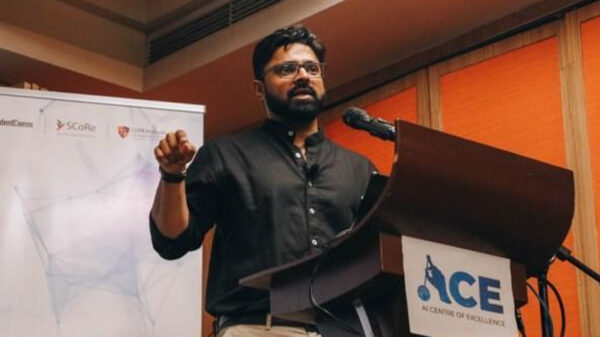Emotion artificial intelligence (AI) systems are becoming so sophisticated that Gartner, Inc. predicts that by 2022, personal devices will know more about an individual’s emotional state than his or her own family. AI is generating multiple disruptive forces that are reshaping the way we interact with personal technologies.
“Emotion AI systems and affective computing are allowing everyday objects to detect, analyze, process and respond to people’s emotional states and moods to provide better context and a more personalized experience,” said Roberta Cozza, research director at Gartner. “To remain relevant, technology vendors must integrate AI into every aspect of their devices, or face marginalization.”
The current wave of emotion AI systems is being driven by the proliferation of virtual personal assistants (VPAs) and other AI-based technology for conversational systems. As a second wave emerges, AI technology will add value to more and more customer experience scenarios, including educational software, video games, diagnostic software, athletic and health performance, and the autonomous car.
“Prototypes and commercial products already exist and adding emotional context by analyzing data points from facial expressions, voice intonation and behavioral patterns will significantly enhance the user experience,” said Ms. Cozza. “Beyond smartphones and connected home devices, wearables and connected vehicles will collect, analyze and process users’ emotional data via computer vision, audio or sensors capturing behavioral data to adapt or respond to a user’s wants and needs.”
Other personal device predictions from Gartner include:
By 2021, 10 percent of wearables users will have changed lifestyles, and thereby extend their life spans by an average of six months.
As AI emotion systems evolve there is huge potential for specialized devices, such as medical wristbands, which can anticipate life-threatening conditions and facilitate an early response system. At the same time special apps are also being developed for diagnostic and therapy services that will help to recognize conditions such as depression or help children with autism.
“Even a basic wearable device could have a positive impact on the wearer’s health,” said Annette Zimmermann, research vice president at Gartner. “We are seeing growing numbers of users actively changing their behavior for the better with the adoption of a wearable device. Not only can this have beneficial influence on the amount of exercise they do but there is evidence that one or two out of 10 smartwatch and fitness band users discover a condition such as sleep apnea or cardiac arrhythmia through wearing the device.”
By 2020, 60 percent of personal technology device vendors will use third-party AI cloud services to enhance functionality and services.
Cloud-based AI technologies are driving compelling user experiences on a variety of connected devices. Cloud offerings from the big tech players, such as Google, Microsoft, Amazon, Tencent, Baidu and IBM, are starting to proliferate due to their attractive cost model, easy-to-use integration and potential to create complex services. A major catalyst for device vendors to use cloud AI services is the increased usage of VPAs and natural-language technologies, while the adoption of VPA-based, screenless devices such as Amazon Echo and Google Home is also on the rise, further increasing usage of cloud AI services.
“We are starting to see adoption of these services from high-profile vendors that are using them to widen their reach,” said Anthony Mullen, research director at Gartner. “Fitbit uses Alexa Skills to make user stats and functionality available through VPA speakers just as Netflix uses Actions for Google Assistant to voice control its service. Ultimately, vendors will compete on the best user experience and the smartness of their products, not the technology behind it.”
Through 2022, security technology combining machine learning, biometrics and user behavior will reduce passwords to account for less than 10 percent of all digital authentications.
Password-based simple authentication is becoming less and less effective for personal devices. Even today’s popular biometric technology — fingerprint authentication — is only around 75 percent successful due to contaminants such as dirt and sweat.
“Users need more convenient and accurate options for unlocking their devices,” said CK Lu, research director at Gartner. “Security technologies that combine machine learning, biometrics and user behavior will become necessary to improve ease of use, self-service and frictionless authentications. Within the next five years new security technology will recognize the user, prevent fraud and detect automation threats such as malware, remote access trojans and malicious bots.”

















































































































